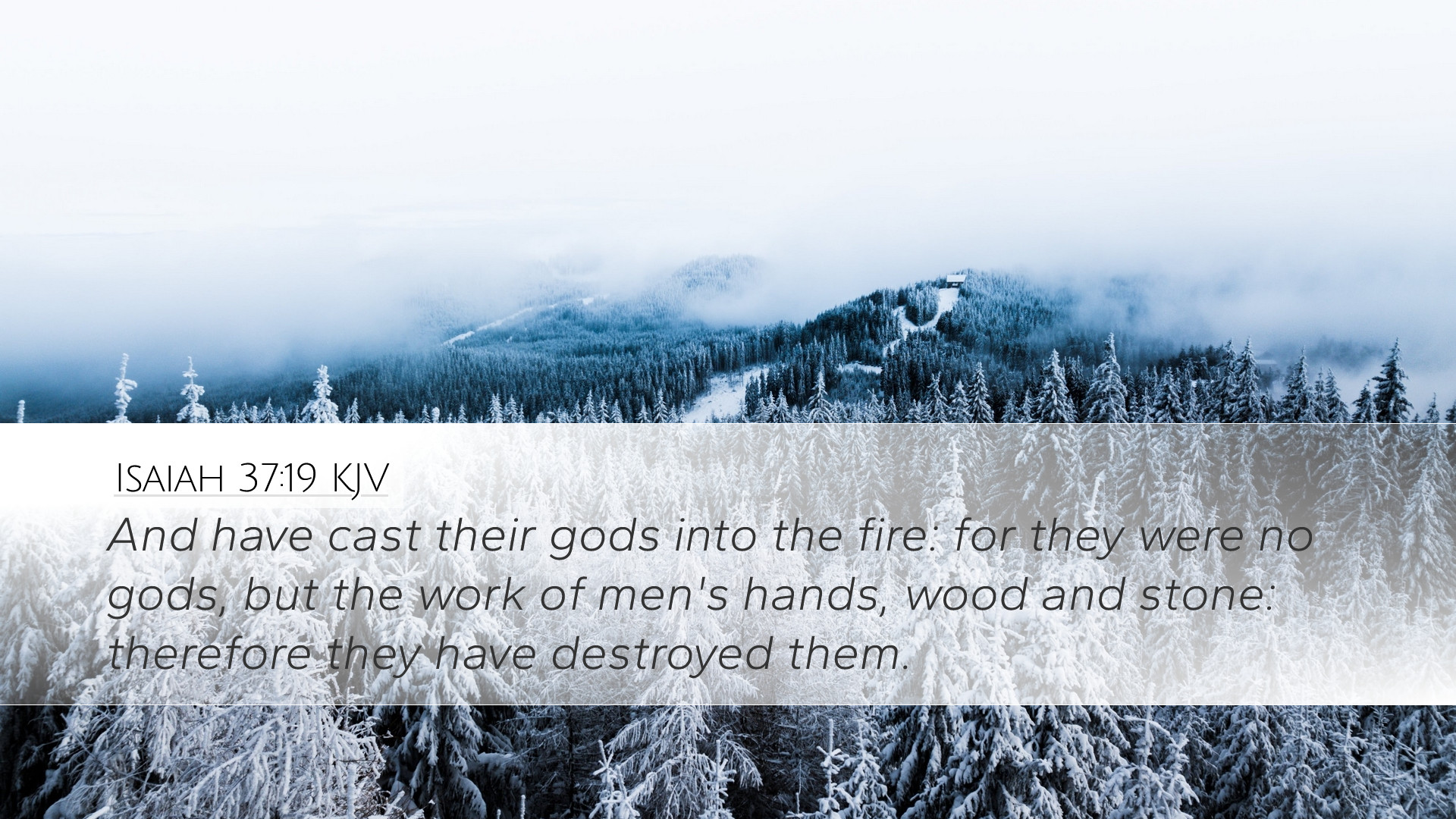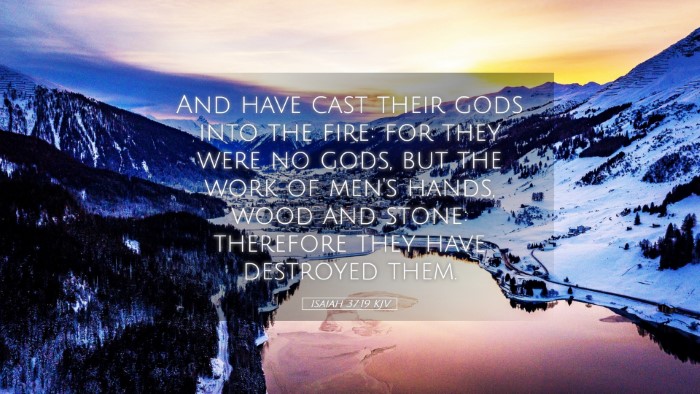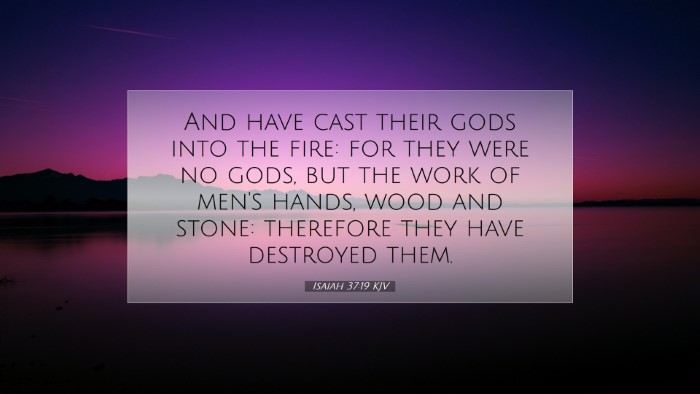Commentary on Isaiah 37:19
Isaiah 37:19 states, "And have cast their gods into the fire; for they were no gods, but the work of men's hands, wood and stone: therefore they have destroyed them." This verse provides a profound insight into the nature of idolatry and the futility of worshiping false gods. In this commentary, we will explore insights from various public domain commentaries to reveal the theological, historical, and practical implications of this scripture.
Contextual Overview
The historical context of this verse lies within the Assyrian threat to Judah during King Hezekiah's reign. The Assyrian king, Sennacherib, boasted of his conquests and sought to intimidate the people of Judah by belittling their God. Isaiah, as a prophet, represents the voice of God, affirming that the Assyrians' idols—made by human hands—are powerless against the sovereignty of the true God.
The Nature of Idolatry
Idols as Human Constructs: Matthew Henry notes that the passage emphasizes the futility of idolatry, stating that idols of wood and stone are creations of human hands, devoid of any divine essence. This assertion is crucial, as it indicates that the so-called deities of the Assyrians are mere artifacts with no power to save or deliver.
Deception of the Heart: Albert Barnes reflects on the ability of humanity to deceive themselves by putting faith in things devoid of life or power. He conveys that these idols can give a false sense of security, yet they ultimately lead to disappointment when true reliance is required.
The Theological Implications
God’s Sovereignty Over Idols: Adam Clarke emphasizes the supreme authority of God over all nations and their gods. The destruction of idols by the Assyrians signifies the impotence of man's creations in the face of divine will. God’s ultimate control serves as comfort to Hezekiah and the people of Jerusalem, promising that they need not fear the might of the Assyrian army or its gods.
Judgment Against Idolatry: This verse serves as a reminder of the impending judgment against idolatry. The very act of casting idols into the fire illustrates the rejection of what is false in favor of what is true. As Barnes points out, those who worship false gods bring upon themselves the consequences of their idolatry, which leads to their ultimate demise.
Practical Applications
Examination of Our Own Idols: This verse encourages believers to examine their lives for anything or anyone that takes the place of God. In contemporary society, idolatry may not manifest as physical idols, but rather as materialism, success, or misguided priorities. Henry urges individuals to consider what they rely on for security and purpose, advocating a return to the rightful worship of the one true God.
Encouragement in Times of Trial: For pastors and theologians, this scripture offers a powerful sermon on reliance and trust in God during difficult times. Just as Hezekiah was assured that the gods of the Assyrians would not prevail, we too can rest assured that no circumstances or forces can stand against the sovereignty of God.
Conclusion
Isaiah 37:19 serves as a potent reminder of the futility of placing trust in anything but the true God. The insights gleaned from Matthew Henry, Albert Barnes, and Adam Clarke deepen our understanding of this verse, revealing crucial implications for the people of God. As we conclude our reflection, let us strive to ensure that in our worship, we cast aside any idols—whether overt or subtle—and commit our lives wholly to the Lordship of Jesus Christ.


